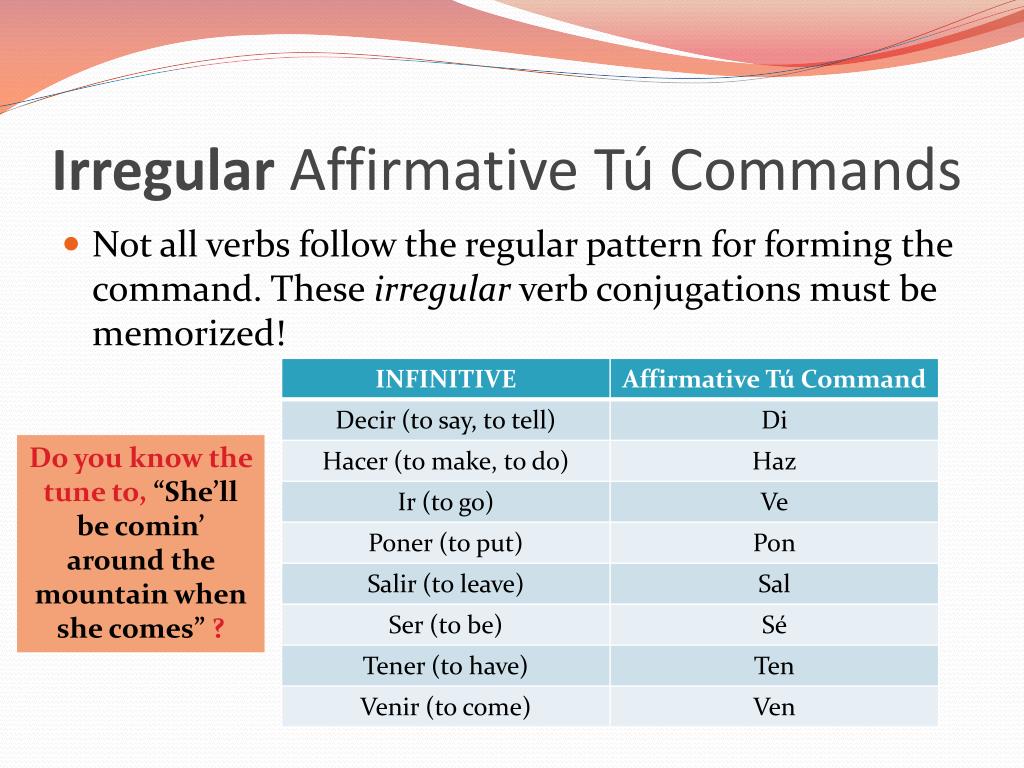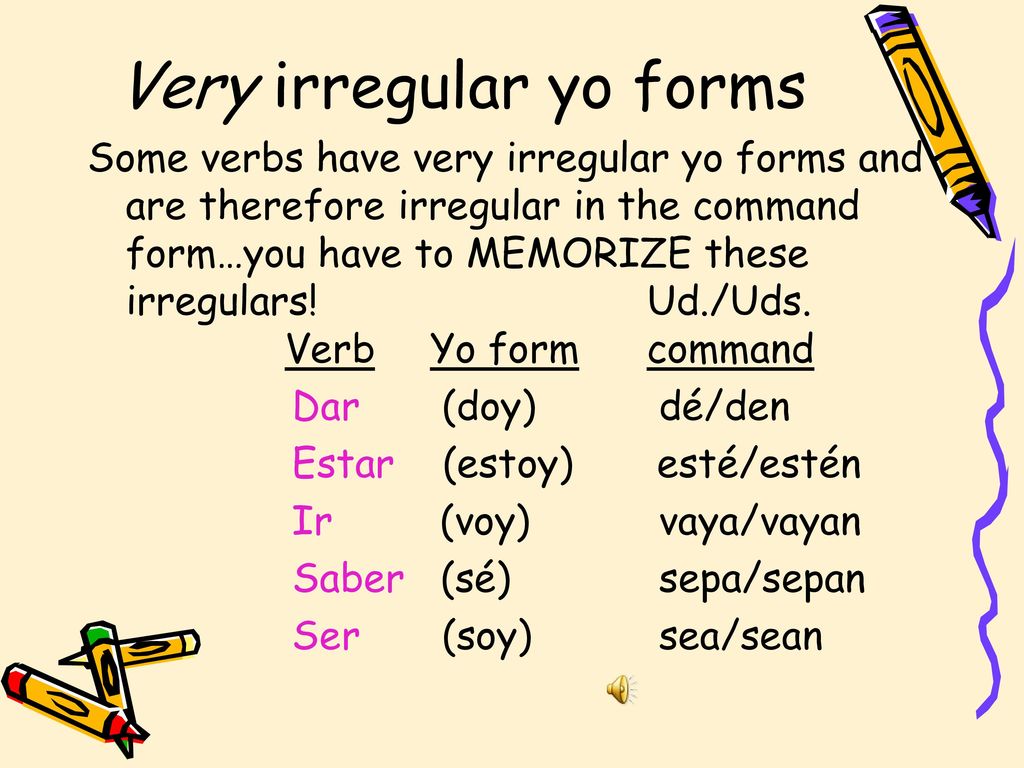Estar Command Form - (tú) está, (él / ud) esté,… For estar, the yo form is estoy. See the tables below for the full conjugations in both positive and negative forms. Here's a quick breakdown of how we got these forms: Learn this and more for free. Estar commands master the art of giving estar commands in the imperative mood to express “to be” in states or locations. A clean and easy to read chart to help you learn how to conjugate the spanish verb estar in positive imperative tense. How do you form estar commands? You can use the imperative form of the estar as a command with the usted form esté., but for the tu form you must use the pronominal.
A clean and easy to read chart to help you learn how to conjugate the spanish verb estar in positive imperative tense. Learn this and more for free. Estar commands master the art of giving estar commands in the imperative mood to express “to be” in states or locations. See the tables below for the full conjugations in both positive and negative forms. (tú) está, (él / ud) esté,… For estar, the yo form is estoy. Here's a quick breakdown of how we got these forms: You can use the imperative form of the estar as a command with the usted form esté., but for the tu form you must use the pronominal. How do you form estar commands?
(tú) está, (él / ud) esté,… How do you form estar commands? A clean and easy to read chart to help you learn how to conjugate the spanish verb estar in positive imperative tense. See the tables below for the full conjugations in both positive and negative forms. For estar, the yo form is estoy. Estar commands master the art of giving estar commands in the imperative mood to express “to be” in states or locations. Here's a quick breakdown of how we got these forms: Learn this and more for free. You can use the imperative form of the estar as a command with the usted form esté., but for the tu form you must use the pronominal.
Tips for working with the FDA eStar form Biologics Consulting
Learn this and more for free. A clean and easy to read chart to help you learn how to conjugate the spanish verb estar in positive imperative tense. For estar, the yo form is estoy. See the tables below for the full conjugations in both positive and negative forms. Estar commands master the art of giving estar commands in the.
Formal and Informal Greetings in Spanish HubPages
See the tables below for the full conjugations in both positive and negative forms. Here's a quick breakdown of how we got these forms: Learn this and more for free. You can use the imperative form of the estar as a command with the usted form esté., but for the tu form you must use the pronominal. Estar commands master.
PPT Negative tú commands PowerPoint Presentation, free download ID
Estar commands master the art of giving estar commands in the imperative mood to express “to be” in states or locations. Here's a quick breakdown of how we got these forms: See the tables below for the full conjugations in both positive and negative forms. You can use the imperative form of the estar as a command with the usted.
Señor Jordan's Spanish Videos » Blog Archive » 02 Ser vs Estar More
You can use the imperative form of the estar as a command with the usted form esté., but for the tu form you must use the pronominal. How do you form estar commands? See the tables below for the full conjugations in both positive and negative forms. Estar commands master the art of giving estar commands in the imperative mood.
image
Learn this and more for free. A clean and easy to read chart to help you learn how to conjugate the spanish verb estar in positive imperative tense. See the tables below for the full conjugations in both positive and negative forms. For estar, the yo form is estoy. You can use the imperative form of the estar as a.
Estar Conjugation Spanish with Tati
How do you form estar commands? For estar, the yo form is estoy. A clean and easy to read chart to help you learn how to conjugate the spanish verb estar in positive imperative tense. (tú) está, (él / ud) esté,… You can use the imperative form of the estar as a command with the usted form esté., but for.
What is the FDA eSTAR program?
Here's a quick breakdown of how we got these forms: A clean and easy to read chart to help you learn how to conjugate the spanish verb estar in positive imperative tense. Learn this and more for free. You can use the imperative form of the estar as a command with the usted form esté., but for the tu form.
PPT Affirmative Tú Commands Regular & Irregular PowerPoint
A clean and easy to read chart to help you learn how to conjugate the spanish verb estar in positive imperative tense. How do you form estar commands? (tú) está, (él / ud) esté,… For estar, the yo form is estoy. You can use the imperative form of the estar as a command with the usted form esté., but for.
Formal (usted/ustedes) Commands Los Mandatos ppt download
(tú) está, (él / ud) esté,… Estar commands master the art of giving estar commands in the imperative mood to express “to be” in states or locations. You can use the imperative form of the estar as a command with the usted form esté., but for the tu form you must use the pronominal. Learn this and more for free..
Quiz & Worksheet Estar in Imperfect Subjunctive & Imperative Form
See the tables below for the full conjugations in both positive and negative forms. How do you form estar commands? Learn this and more for free. For estar, the yo form is estoy. A clean and easy to read chart to help you learn how to conjugate the spanish verb estar in positive imperative tense.
You Can Use The Imperative Form Of The Estar As A Command With The Usted Form Esté., But For The Tu Form You Must Use The Pronominal.
Learn this and more for free. Estar commands master the art of giving estar commands in the imperative mood to express “to be” in states or locations. How do you form estar commands? See the tables below for the full conjugations in both positive and negative forms.
A Clean And Easy To Read Chart To Help You Learn How To Conjugate The Spanish Verb Estar In Positive Imperative Tense.
For estar, the yo form is estoy. Here's a quick breakdown of how we got these forms: (tú) está, (él / ud) esté,…

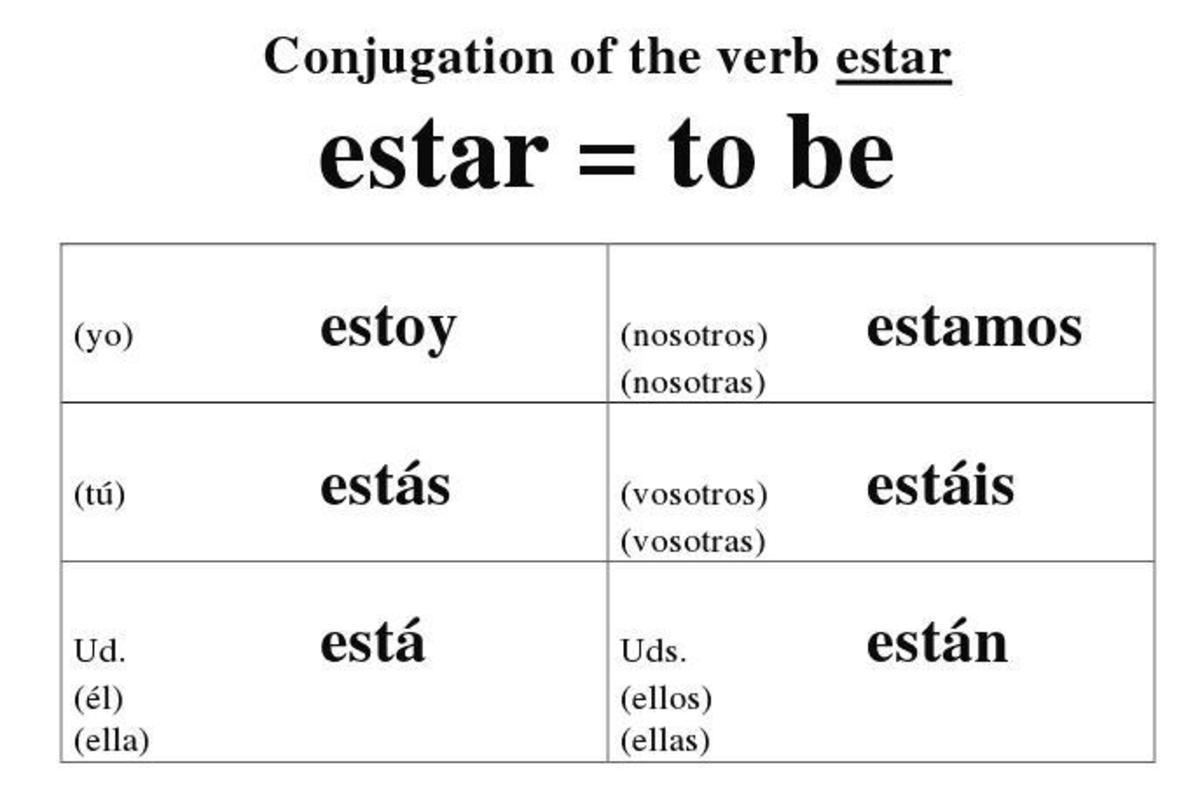
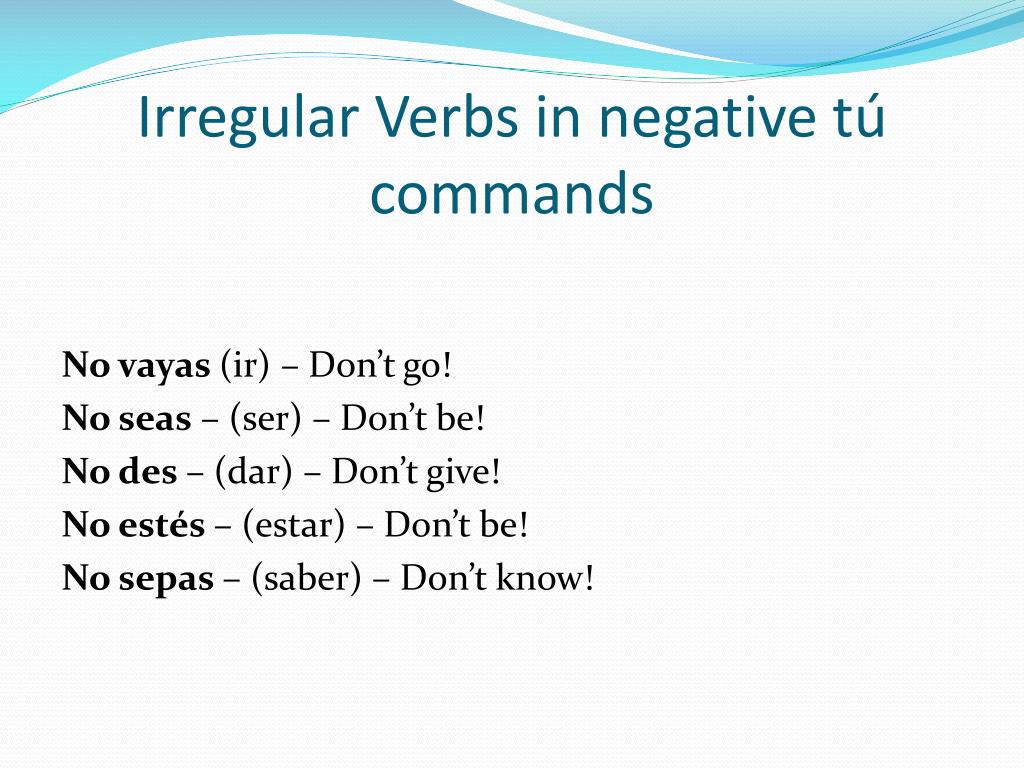
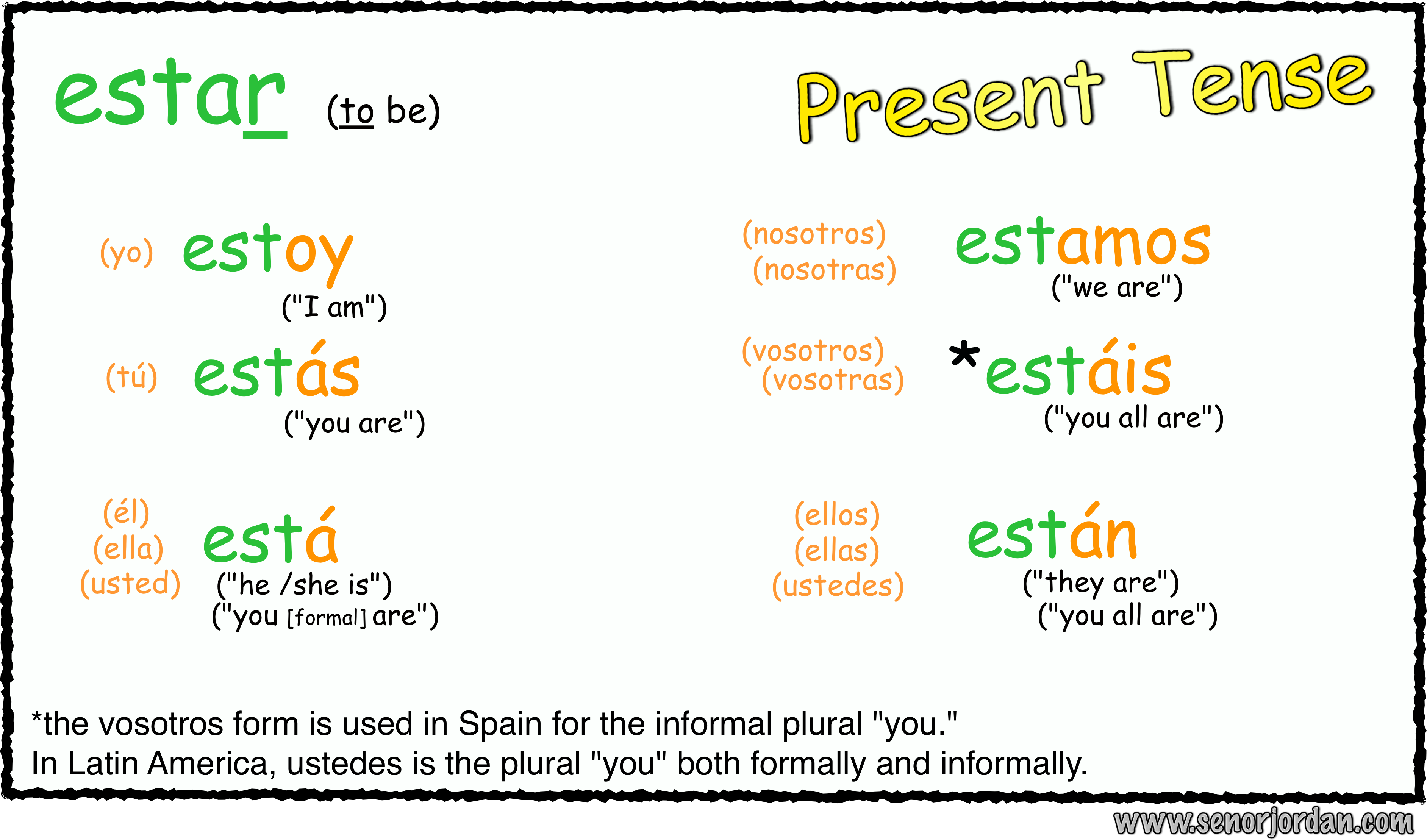
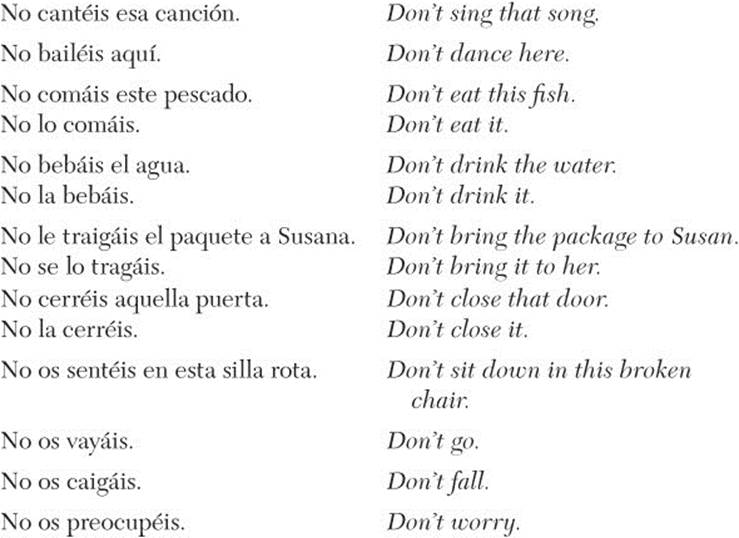

.jpg)
